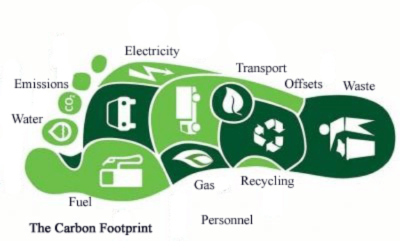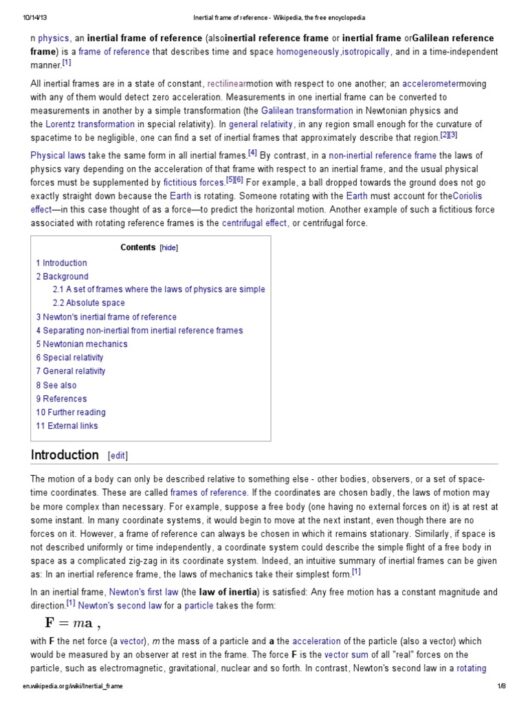As we navigate our daily lives in an increasingly complex world, the phrase “carbon footprint” often dominates discussions surrounding climate change. However, modern environmental challenges compel us to look beyond these familiar metrics and delve deeper into our consumptive patterns and their omnipresent impact on the planet. The nexus between our routines and the climate crisis has never been more pronounced, urging us to reconsider not only our carbon emissions but also the myriad ways our actions resonate across ecosystems.
Our daily existence is a tapestry woven from innumerable threads—each choice we make contributes to a larger narrative shaping the climate’s future. The breakfast we consume, the mode of transportation we select, and even the types of products we purchase serve as daily affirmations of our relationship with the environment. Unfortunately, many remain blissfully unaware or apathetic regarding the consequences of their choices. This oblivion, while comfortable, is increasingly untenable in light of the weighty climate consequences we now confront.
To evoke a more profound consciousness, one must first understand the multiple layers of environmental impact. Beyond simply tallying emissions from vehicles and industrial processes, we must scrutinize the entire lifecycle of our consumption—from resource extraction and production to packaging and disposal. This perspective compels us to engage with the concept of “embedded carbon,” the greenhouse gases emitted throughout the lifetime of a product. For instance, the creation of a cotton t-shirt requires substantial water, energy, and agricultural inputs, rendering it far more carbon-intensive than its simplistic utility suggests.
Moreover, the stark reality of collective human behavior comes into play. Neighborhoods filled with sprawling fast-food chains, convenience stores, and gas stations cultivate an ecosystem that often engenders a reliance on convenience over sustainability. The convenience food culture not only contributes to a reliance on heavily processed products but also encourages a throwaway mentality, wherein single-use plastics and disposable items proliferate. Thus, the cycle of consumption becomes inextricably linked to our environmental legacy, dominating landfill spaces and contaminating ecosystems.
The societal implications are equally significant. Food deserts and urban planning strategies often reflect systemic inequities, where marginalized populations bear the brunt of environmental degradation. These communities frequently lack access to healthy food options and sufficient public transportation, trapping them in a vicious cycle of unhealthy consumption and heightened emissions. This intersectionality of climate justice and social equity reveals a pressing need for systemic change—one that transcends individual actions to address structural factors that dictate consumer choices.
Transitioning to a sustainable lifestyle calls for a robust examination of our value systems and behavior patterns. We can begin this journey by reformulating the way we engage with food. Plant-based diets have surged in popularity, supported by a wealth of research indicating their potential environmental benefits. Reducing meat consumption and opting for locally-sourced produce not only curtails individual carbon footprints but can also foster community resilience. When we prioritize local agriculture, we support regional economies while minimizing transportation emissions.
In transportation, the paradigm is shifting. The rise of electric vehicles (EVs) stands testament to the zeitgeist of environmental innovation. However, while transitioning away from fossil fuels is crucial, we must also contemplate urban transport infrastructures that promote public transport, biking, and walking. By reimagining cityscapes that prioritize accessibility over car dependency, we can engender communities that thrive on shared, clean transport alternatives—reducing not just emissions but also fostering communal connections.
Industrial practices are not exempt from scrutiny. The rise of the circular economy—an economic model emphasizing reuse, repair, and recycling—presents a compelling counter-narrative to our current linear consumption practices. Companies are increasingly being held accountable for the lifecycle impacts of their products, pushing for innovative solutions that mitigate waste and promote sustainability. Businesses that incorporate these principles into their core operations demonstrate not only corporate responsibility but also operational agility in a market increasingly favoring eco-consciousness.
As we consider the implications of our individual and collective actions, it becomes evident that education and advocacy play pivotal roles in propelling systemic change. Initiatives promoting environmental literacy in schools and communities help foster empathy and action. By equipping future generations with a comprehensive understanding of climate issues and their interrelated nature, we can cultivate informed citizens whom we hope will effectuate palpable change.
Ultimately, viewing the climate crisis through a multifaceted lens enables us to redefine our relationship with the natural world. We can rapidly move beyond reductionist views focused solely on carbon footprints by embracing a holistic understanding of our impact. Altering our consumption patterns, supporting systemic change, and spearheading grassroots initiatives will serve as catalysts for more sustainable futures.
Collectively, we can reimagine our daily lives as interconnected with the global ecosystem. As individuals, we possess the power to wield our choices as catalysts for transformation. Through cultivation of a conscientious society, we can navigate beyond mere survival toward a future that respects the delicate balance of our planet’s health. Each small action lays the groundwork for a monumental shift, one that transcends geography and stakeholders to embrace a united commitment towards the restoration of our planet’s well-being.








